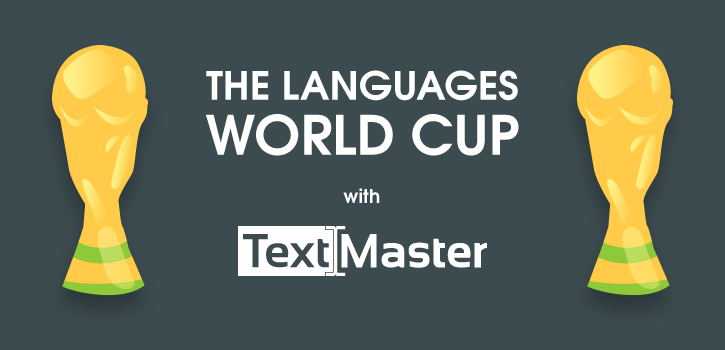There are over 7000 languages used around the world, with English having the most native speakers around the world, followed by Chinese and Spanish. Today, English also takes top online, as it was the original language when the Internet was created and is still the main language for developers. Let’s not forget that 30 years ago, it was impossible to use letters with accents or non-Latin characters.
In the last 20 years however, we’ve seen a rise in other languages on the internet: English content has decreased from 80% to 60% and the number of English-speakers online has dropped from 80% to 25%. As internet use accelerates around the world, it’s no wonder that there is more and more multilingual content available online. With one out of two people having internet access, only 6% of the world’s population is English-speaking.
The linguistic structure of the internet is evolving, and other languages are set to overthrow English online. Here’s an overview of what you can expect on the internet in the next few years.
Discover our new “Internationalisation from A to Z” ebook!
Languages with the highest number of online users
According to Internet World Stats, 1186 million internet users speak English. This number rose 742.9% between 2000 and 2020 and makes up 25.9% of the global online population.
The number of Chinese speakers online is estimated at 888.4 million, which has risen an astounding 2600% over the same time period. The Chinese language is catching up quickly and is set to overtake English in the near future. The country also has a lot of room to grow as the internet penetration rate is only 60%.
Spanish comes a long way behind, with only an estimated 363.6 million Spanish speakers online and a growth rate of 1500% between 2000 and 2020. This is closely followed by Arabic, with 237.4 million web users and an impressive 9300% growth rate.
It’s important to note that the top 10 languages used online represent 77% of the total global online population.
The most popular languages for websites
Web Technology Survey analyzed over 10 million multilingual websites in order to identify the most popular languages.
Once again, English comes in first place, making up 60.5% of worldwide content. This is followed by Russian (8.4%), Spanish (3.9%), Turkish (3.8%) and Persian (3.2%).
This data should be taken with caution, as it is quite difficult to estimate the real portion of languages on the internet.
The languages with the highest purchasing power
According to a study by Common Sense Advisory, English is the language with the highest purchasing power online. As the official language in 54 countries and spoken by more than 400 million people.
English
Even if English is not your native language, it is necessary to translate your website into English to have a better chance of entering the majority of the world’s markets. It is important to know that Americans are very accustomed to online shopping and this is even how New Yorkers do their daily business.
As for the British, they represent a large part of the English online market and are used to ordering from abroad.
When you offer a website written in English, you also create content for other cross-border buyers. Don’t overlook any details!
Spanish
Spanish is of course a language that Americans are likely to know. On the one hand because of the Latino population and on the other hand because of the proximity of many Spanish speaking countries. The e-commerce market in Spain is booming and has often been growing in recent years.
German
First of all, it is important to note that Germany is the European country with the strongest economy. As the 5th largest e-commerce market in the world and 2nd largest in Europe, Germany is very attractive for foreign players. 95% of the German population uses the internet and 84% of the 82.4 million Germans have already made online purchases.
Internet opens the door for linguistic diversity
The total number of English speakers around the world, including those who speak it as a second language, is a whopping 1.1 billion. Although a significant portion of the world understands English, this doesn’t mean that it’s the language they prefer to read content. 55% of online users spend the majority of their time on website in their native language.
With this in mind, the internet can actually be a way to promote linguistic diversity by enabling the creation and publication of a variety of multilingual content.







